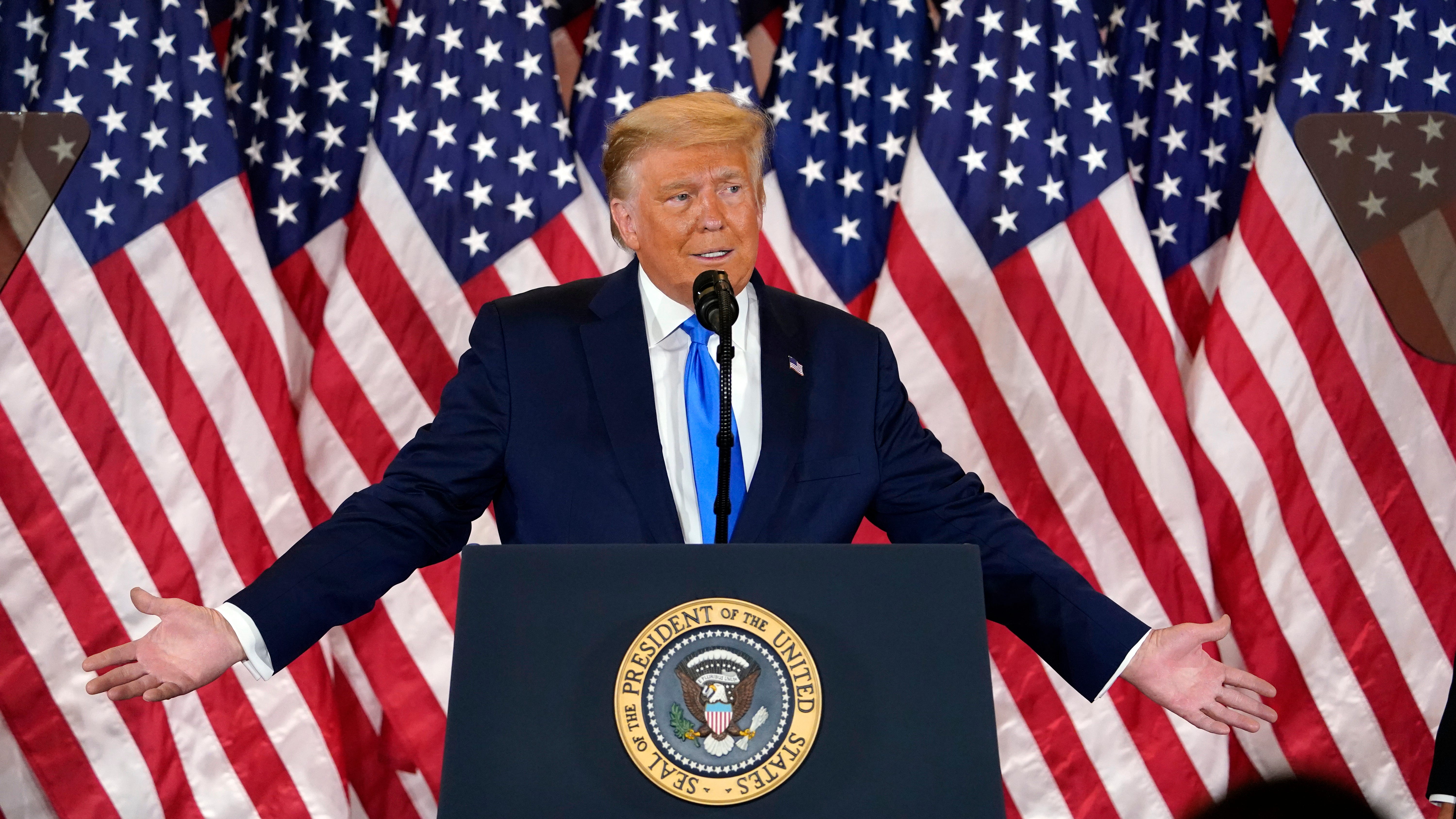Opinion: Trump is lying about election fraud. It’s distorting the 2020 presidential election

Since losing the popular vote by nearly 3 million ballots in 2016, Donald Trump has regularly used election fraud allegations to hide his political shortcomings. But his claims in a statement read in the White House briefing room Thursday night are dangerous to American democracy.
Trump claimed that the vote counts in the election are rigged and that counting should cease in cities like Philadelphia — claims made without any supporting facts.
These claims will undermine confidence in the election’s winner and destroy faith in the integrity of the voting process. Whether Trump wins or loses in the coming days, his use of this fraud rhetoric will have lasting repercussions for our democracy.
For months, President Trump has disparaged mail-in voting as inherently fraudulent (despite the fact that he voted by mail this election cycle). He has given no evidence to support this claim. Indeed, voting by mail has a long track record of success. So, arguably, the reason he’s trying to discredit mail-in voting is because Democrats disproportionately used it in this election.
This tactic of claiming fraud to cast doubt on election integrity is nothing new. I call this tactic the “voter fraud meme.” Trump’s rhetoric about voter fraud propagates the belief (without proof) that some voters are illegitimate and that these “illegal voters” must be excluded by stricter voting laws. But there is little evidence of voter-level fraud, and voter suppression laws have a disproportionate impact on the poor, people of color, and others who cannot navigate heightened voting requirements.
What is new is that Trump is using fraud rhetoric to target the validity of his own re-election.
As the vote counts narrow in the states remaining to be called, the president and his campaign are using allegations of fraud to selectively silence voters who, in compliance with the law, cast their votes by absentee ballot. And his campaign continues to explore ways to bring lawsuits based on the thinnest of assertions of illegality. The heart of these assertions is that the counting of absentee ballots that were mailed on Election Day, but received after Election Day, is fraudulent and ought to cease. Conveniently, stopping these votes from being counted would be to Trump’s advantage.
This claim is patently false. Absentee ballots mailed on Election Day are legal ballots, and the principle of counting every legally cast vote is basic to democracy. Unless a serious flaw in the vote-counting process is revealed, the Trump campaign is left with wishful thinking and overheated rhetoric as a strategy.
Yet Trump’s supporters take this voter fraud disinformation as gospel. They are marching in Philadelphia and other cities demanding that vote counts stop. This shows how the Trump campaign’s egregious disinformation sows doubt about the legitimacy of the ultimate election result — whatever it might be. But, even more troublingly this disinformation campaign spreads fear that Trump’s supporters, or even the president himself, will use the fraud myth to justify not accepting a win by former Vice President Joe Biden. This is not mere paranoia among anxious Democratic voters: President Trump has time and again refused to commit to accepting the election result.
Moreover, the tactic of spreading disinformation about vote-counting is racially charged. Trump’s election fraud rhetoric and the flimsy pending law suits are targeting votes in cities with substantial populations of people of color. If Trump gets what he wants, tens of thousands of voters — a large number of whom are likely voters of color, will have their votes suppressed despite their compliance with the law.
Accusations of voter fraud historically were designed to demean the standing of people of color as citizens and to frame their use of the right to vote as dangerous. This has now transformed into disparaging and threatening the election process by putting their votes at risk. And it is due to the election fraud disinformation disseminated by the president and his supporters.
This kind of rhetoric damages faith in the American electoral process. It gives the appearance that the leader of the free world can dictate an election result and can intimidate and silence his opponents. It undercuts the basic premise of equality that underlie democracy. Trump’s rhetoric reinforces racial discrimination by manufacturing legal technicalities that echo the worst days of Jim Crow disenfranchisement. As a result, Trump’s rhetoric of voter fraud exacerbates racial and political divisions.
Rather than allow this rhetoric to wreck this election, we must demand that all votes cast legally under state law be counted to ensure the validity of the election of the next president.
Atiba Ellis is a professor at Marquette University Law School and an election law expert.
*** This article has been archived for your research. The original version from Milwaukee Journal Sentinel can be found here ***

